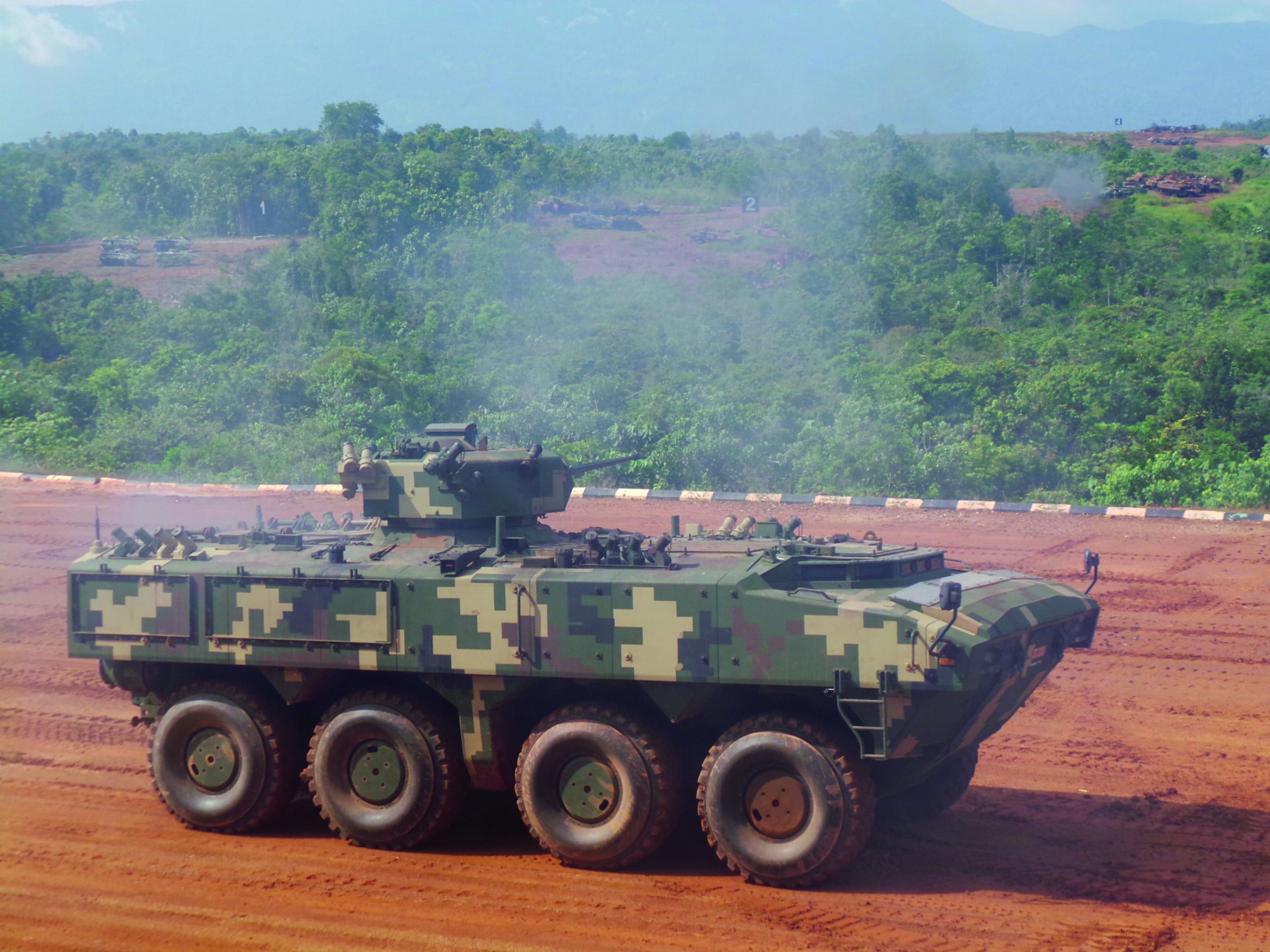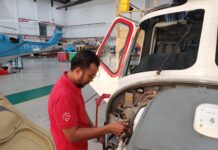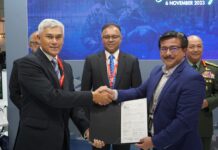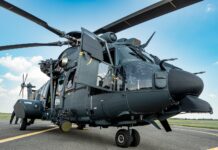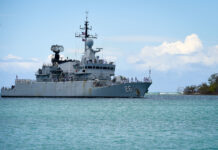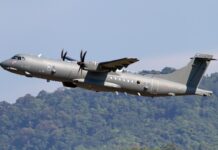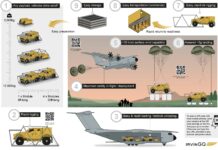With the country continuing to battle the COVID-19 virus, there has been little large-scale procurement or development undertaken for the Malaysian Armed Forces (MAF), the Royal Malaysian Police (RMP) and the Malaysian Coast Guard (MCG).
This situation may well continue given the cost of containing the pandemic and its effect on the Malaysian economy. In addition, Prime Minister Muhyiddin Yassin has stated that once the situation in Malaysia is contained, a general election will be held as Muhyiddin’s Perikatan Nasional sees a general election as the best way of enhancing its slim parliamentary majority by gaining opposition seats. As such, any major defence or security spending is unlikely to be undertaken until after a general election.
However, some procurement has been undertaken or tendered, along with deliveries of equipment contracted for by previous governments, together with procurement related to the operations of the National Task Force (NTF) which was established in April 2020. The NTF is headed by the MAF to manage an integrated multi-agency response to preventing the entry of illegal immigrants into Malaysia. A total of 19 Malaysian government agencies come under the NTF with the MAF, RMP and MCG carrying out the operational tasking of border patrols and interceptions with the entire ongoing operations known as Ops BENTENG. The issue of preventing illegal immigrants entering the country has been a priority given the fears that immigrants may contribute to the spread of COVID-19. As a result, procurement for the MAF, RMP and MCG in regard to the NTF has been of priority, though much of the equipment purchased has been items such as 4×4 vehicles, all-terrain vehicles, motorcycles, rigid hull inflatables, small drones and surveillance, optical and illumination devices, all of which are necessary for the border patrols and for the interception of immigrants entering via land borders or the sea in small boats.
Littoral Combat Ship Troubles
The troubled six ship MAHARAJA LELA class Littoral Combat Ship (LCS) programme continues to be in limbo. Technically a corvette class ship, based on the Naval Group GOWIND design, the Royal Malaysian Navy (RMN) chose the LCS classification to downplay the ships’ capabilities amidst concerns that the programme might be seen as part of a South-East Asian naval arms race. Construction began in 2015, but by 2017, the programme had fallen behind schedule and subsequently the then Pakatan Harapan government revealed in 2019 that the programme was behind schedule with the first ship missing its planned delivery date of April 2019, and now scheduled for delivery in April 2023. In addition, the programme would require additional funding of MYR 1.4Bn (€285M) to enable completion of the ships.
The Pakatan Harapan government had made no decision on resolving the issue, and thus the matter was inherited by the Perikatan Nasional government, which has yet to make a decision on the matter at time of writing. Defence Minister Ismail Sabri told Parliament in August 2020 that the government had three options regarding the programme. The first was the appointment of Naval Group as the rescue contractor to the programme, using the balance of funds from the MYR 9.1Bn (€1.85Bn) ceiling cost of the contract to complete at least two ships. The second option was to allow Boustead Naval Shipyards, the constructor of the ships, to complete two ships with the balance of funds from the ceiling cost, while the third option was for the government to cancel the contract with Boustead Naval Shipyards and initiate its own efforts to salvage the programme.
As of February 2021, the government had yet to make a decision on how to proceed. The problems with the LCS programme makes the RMN 15 To 5 Transformation Plan initiated in 2017 highly unviable now. The 15 To 5 plan called for the transformation of the RMN’s fleet of 15 different ship classes to just five classes and included plans for an additional six LCSs to add to the six ordered and also 12 more heavily armed and equipped variants of the KEDAH class (MEKO 100 based design) Next Generation Patrol Vessels in service. As Boustead Naval Shipyards are the in-country builders and the holder of the Malaysian rights to build both ship classes, the additional ships are unlikely to be contracted given Boustead’s problems with the current LCS construction.
New and Ongoing Programmes
A small number of programmes have been initiated or were ongoing in 2020 and at the beginning of 2021. In May 2020, the RMN received the first six of 12 SCANEAGLE Unmanned Aerial Systems (UAS) provided by the United States, with the remaining six to be delivered in 2021. Operations with the six SCANEAGLES delivered, however, only began in February 2021 as the RMN opted to wait until US technical personnel were in country to provide support; the entry of these personnel was delayed due to COVID-19 restrictions imposed by both countries regarding overseas travel and entry requirements. The RMN’s second KERIS class Littoral Mission Ship, KD SUNDANG, arrived home from China in January 2021 after being accepted from shipbuilders China Shipbuilding International Corporation. The ship had originally been scheduled to be handed over in April 2020, but the pandemic resulted in the handover being postponed. The remaining two of the four KERIS class ordered are expected to be delivered in August and September 2021 respectively.
The Malaysian Army meanwhile is expected to take delivery of 18 Nexter LG1 105 mm howitzers in 2021, with the guns ordered in 2018 and also wrap up the balance of the 257 vehicle order of the Deftech AV8 GEMPITA 8×8 AFV, of which some 40 plus vehicles remain to be delivered in 2021. A tender was issued in October 2020 for 20 4×4 armoured personnel carriers for service with Malaysia’s UNIFIL contingent in Lebanon with the tender currently in the evaluation stage.
Meanwhile, the Royal Malaysian Air Force (RMAF) despatched to Indonesia the first of its three CN-235 transport aircraft to be converted to Maritime Security Aircraft under a US sponsored capacity building programme. The conversion work will be carried out by manufacturer PT Dirgantara in Indonesia, while the mission systems integrators will be US companies Science and Engineering Services International and Integrated Surveillance and Defence Inc. Two separate tenders for the supply of two Maritime Patrol Aircraft and three Medium Altitude Long Endurance (MALE) UAS for the RMAF were issued in August 2020 and are currently in the evaluation stage with a decision expected in the first quarter of 2021. The Airbus C295 and Leonardo ATR72 are said to be among the contenders for the maritime patrol aircraft tender, while the MALE UAS contenders include the Kronsthadt Group ORION E, Leonardo Falco EVO, CAIG WING LOONG and TAI ANKA. The RMAF also expects to initiate a tender in 2021 for at least 12 Light Combat Aircraft to carry out both the light attack and lead in fighter training roles performed currently by the BAE HAWK 100/200 and Leonardo’s MB-339CM.
The Malaysian Coastguard is expected to receive the first of its three Damen 1800 Offshore Patrol Vessels in 2021 with the remaining two in 2022. The 83 metre OPVs, known as the TUN FATIMAH class are built locally by THHE-Destini Malaysia with the primary armament consisting of a single 30 mm Aselsan SMASH remote control weapon system, along with on-board machine guns. A flight deck and hangar allows a single medium-sized helicopter to be embarked. The RMP has been given approval to initiate the procurement of 18 armoured vehicles for operations in the Eastern Sabah Security Zone and a contract is expected to be awarded in 2021 once the RMP has finished its evaluations. The Royal Malaysian Police currently operates a small mix of IAG JAWS APCs, Streit TYPHOON MRAPs and Shinjeong BARRACUDA APCs, along with a number of aging GKN Sankey SAXONs and Cadillac Gage V150 APCs.
Conclusion
The COVID-19 situation, together with the current Perikatan Nasional’s slim parliamentary majority, has largely resulted in both civil and military security procurement programmes being given less priority in most cases, except for procurement related to Ops BENTENG. The cost of financial relief and economic stimulation and support programmes by the government to overcome the effect of the pandemic on the economy will constrain Malaysia from extensive spending on its military and civil security. In any event, it remains to be seen if the Perikatan Nasional government will remain in power if it decides to hold a general election in 2021. As such, just how Malaysia’s civil and military security sector develops will only be seen once a general election has taken place.
Dzirhan Mahadzir


